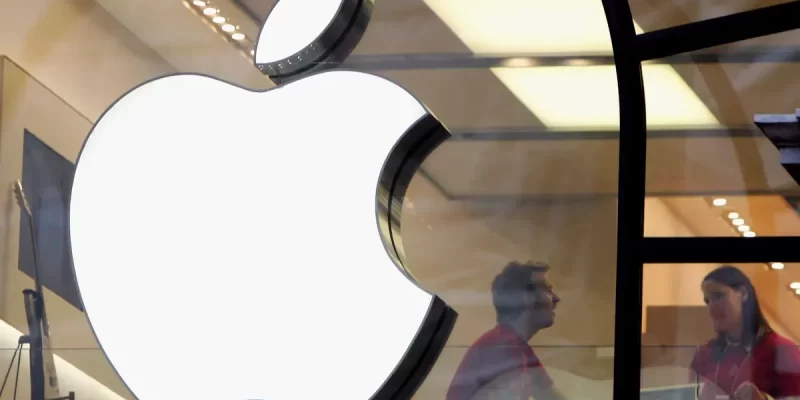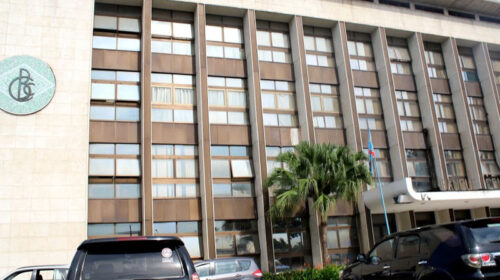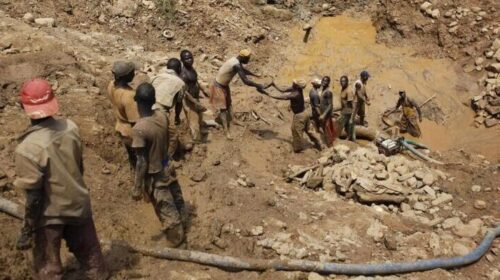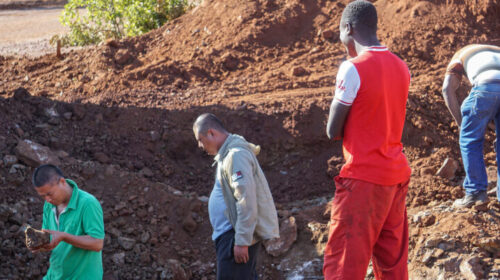DRC Files Criminal Complaints Against Apple Over Conflict Minerals
The Democratic Republic of Congo (DRC) has filed criminal complaints against Apple subsidiaries in France and Belgium, accusing the tech giant of using conflict minerals in its supply chain. Lawyers representing the Congolese government revealed the allegations to Reuters.
The DRC, a significant source of tin, tantalum, and tungsten—known as 3T minerals—used in electronic devices, has long suffered from artisanal mines controlled by armed groups.
These groups have been linked to atrocities, including massacres, mass rapes, and looting, as reported by UN experts and human rights organizations.
Apple, which does not directly source raw minerals, claims it conducts rigorous supplier audits, publishes findings, and supports initiatives to improve mineral traceability.
In its 2023 conflict minerals report to the US Securities and Exchange Commission (SEC), Apple stated that none of its smelters or refiners had financed or supported armed groups in the DRC or neighboring countries.
However, international lawyers for the DRC argue that Apple indirectly uses minerals illegally extracted from Congo and laundered through global supply chains, implicating the company in crimes committed within the country.
The complaints, filed in the Paris prosecutor’s office and a Belgian magistrate’s office, accuse Apple France, Apple Retail France, and Apple Retail Belgium of several offenses, including:
- Covering up war crimes,
- Laundering minerals obtained from conflict zones,
- Handling stolen goods, and
- Misleading consumers about the integrity of its supply chain.
Belgium holds particular significance in this case due to its colonial history in Congo under King Leopold II, during which resource exploitation began.
Christophe Marchand, the DRC’s Belgian lawyer, emphasized Belgium’s moral responsibility to support Congo’s fight against mineral exploitation.
“Belgium must aid Congo’s effort to end the pillaging of its resources through legal channels,” Marchand stated.
The complaints, filed on behalf of Congo’s justice minister, target not only the subsidiaries but also Apple as a global entity. France and Belgium were chosen for their strong corporate accountability frameworks, and judicial authorities in both countries will decide whether to pursue investigations or charges.
For decades, Congo’s eastern regions have been devastated by conflicts involving armed groups, some backed by neighboring Rwanda, and the Congolese military.
Millions of civilians have been killed or displaced as competition for minerals fuels violence. Armed groups sustain operations and fund weapon purchases through illicit mineral exports, often smuggled via Rwanda.
The complaints highlight ITSCI, an industry-funded monitoring scheme designed to ensure ethical sourcing of 3T minerals from Congo, Rwanda, Burundi, and Uganda.
The DRC’s lawyers argue that ITSCI has been discredited, including by the Responsible Minerals Initiative (RMI), of which Apple is a member.
In 2022, the RMI suspended ITSCI from its list of approved traceability schemes, citing a lack of transparency and accountability in high-risk mining areas, particularly in North Kivu, a key 3T-producing region.
Despite this, Apple’s 2023 conflict minerals report mentions ITSCI multiple times but omits the RMI’s suspension.
ITSCI has denied allegations of wrongdoing, defending its operations in Congo as reliable. It also criticized RMI’s processes following the suspension.
This case marks the first time the DRC has taken legal action against a major tech company. Robert Amsterdam, a US-based lawyer for the Congolese government, described the filings as a “first salvo,” signaling further legal measures may follow.
The US State Department acknowledged the risks associated with minerals from the DRC and neighboring regions in a July 2023 statement, highlighting systemic flaws in traceability schemes that have yet to be addressed.
In a separate March 2023 case, a US federal court dismissed private plaintiffs’ attempts to hold Apple, Google, Tesla, Dell, and Microsoft accountable for alleged reliance on child labor in Congolese cobalt mines.
The DRC remains determined to hold Apple accountable, with its lawyers confident that courts in France and Belgium will recognize the company’s alleged complicity in conflict-related crimes.
![]()





